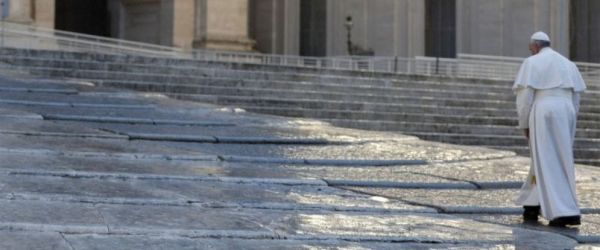Here is the syndrome of Jonah, which "strikes those who do not have the zeal for the conversion of the people, they seek a holiness - allow me the word - a holiness of dyeing, that is, all beautiful, all well done but without the zeal that leads us to preach the Lord". The Pope recalled that the Lord "before this generation, sick with the Jonah syndrome, promises the sign of Jonah". He added: "In the other version, that of Matthew, it says: but Jonah was in the whale three nights and three days... The reference is to Jesus in the tomb, to his death and resurrection. And this is the sign that Jesus promises: against hypocrisy, against this attitude of perfect religiosity, against this attitude of a group of Pharisees'.
To make the concept clearer, the bishop of Rome referred to another parable from the Gospel "that represents well what Jesus wants to say. It is the parable of the Pharisee and the publican praying in the temple (Luke 14:10-14). The Pharisee is so sure before the altar that he says: I thank you God that I am not like all these people from Nineveh, nor like the one who is there! And the one who was there was the publican, who only said: Lord have mercy on me who am a sinner".
The sign that Jesus promises "is his forgiveness," Pope Francis pointed out, "through his death and resurrection. The sign that Jesus promises is his mercy, the one that God had already been asking for some time: mercy I want and not sacrifices". So "the true sign of Jonah is the one that gives us the confidence of being saved by the blood of Christ. There are many Christians who think they are saved only by what they do, by their works. Works are necessary, but they are a consequence, a response to that merciful love that saves us. Works alone, without this merciful love, are not enough.
So "the Jonah syndrome affects those who trust only in their personal righteousness, in their works". And when Jesus says "this wicked generation", he is referring to "all those who have Jonah's syndrome in them". But there is more: "Jonah's syndrome," said the Pope, "leads us to hypocrisy, to that sufficiency that we believe we achieve because we are clean, perfect Christians, because we do these works we keep the commandments, everything. A big disease, the Jonah syndrome!". Whereas "the sign of Jonah" is "the mercy of God in Jesus Christ who died and rose again for us, for our salvation".
"There are two words in the first reading," he added, "that connect with this. Paul says of himself that he is an apostle, not because he has studied, but he is an apostle by calling. And to Christians he says: you are called by Jesus Christ. The sign of Jonah calls us'. Today's liturgy, the Pontiff concluded, helps us to understand and make a choice: "Do we want to follow the syndrome of Jonah or the sign of Jonah?"
[Pope Francis, St. Martha, in L'Osservatore Romano 15.10.13]












